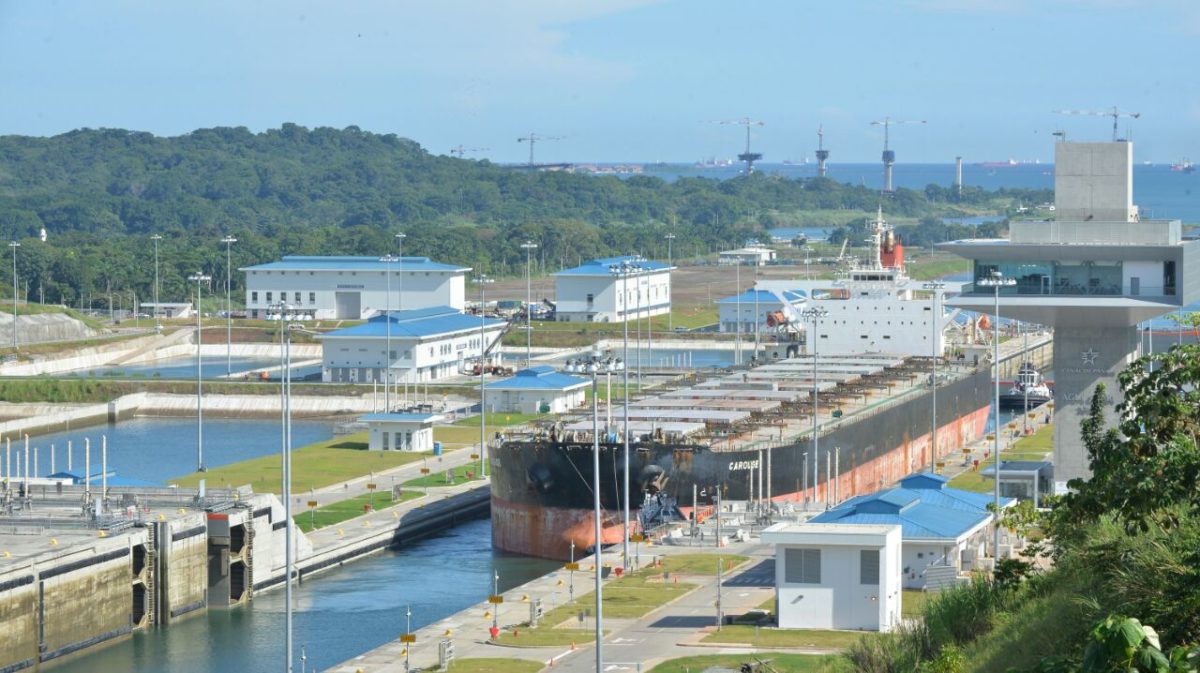Iranian Ship Linked to Houthi Attacks Heads Home Amid Tensions
(Bloomberg) — An Iranian ship that’s been linked to Houthi attacks in the Red Sea is returning home, removing a prominent asset in the area as the Islamic Republic braces...


File photo
![]()
![]()
CHICAGO, March 3 (Reuters) – A backlog of grain ships waiting to load at U.S. Pacific Northwest (PNW) ports is threatening to persist into April, prompting key Asian customers to switch purchases to more distant Gulf Coast terminals and sending prices there higher, traders and industry analysts said.
Corn export prices at Gulf elevators climbed to post-harvest peaks this week as PNW shippers stopped offering March shipments due to congestion at the ports including Seattle and Portland that are collectively the country’s No. 2 grain port. Companies including Archer Daniels Midland Co, Bunge Ltd and Cargill Inc operate terminals there.
More than 60 ships are waiting to load at PNW terminals, two to three times normal, after months of rainy weather slowed loadings and heavy snowfall at times choked rail-delivered supplies to ports, traders said.
Another 20 ships are scheduled to arrive later this month, putting additional strain on facilities collectively capable of loading 40 to 50 ships a month and sending buyers looking elsewhere for grain.
“We’ve been seeing Asian business that we normally don’t see at the Gulf and it’s all because of the problems in the PNW,” said a Gulf corn exporter who asked not to be named because he was not authorized to speak with media.
At least five corn vessels slated to load in the PNW, the shortest U.S. route to Asia, have already been switched to load at the Gulf where shipping times can be two weeks longer, exporters said.
Spot corn export prices at the Gulf climbed above $176 per tonne on a free-on-board basis on Thursday, the highest since mid-September. March corn was unavailable from the PNW.
BNSF Railway Co, whose tracks link Midwest farms to PNW ports, has added crews and equipment to ease congestion, but the number of delayed trains remains high. BNSF reported 146 grain trains held short of their destinations last week, down from 167 in mid-February but above the 48 in the same week last year.
“It seems like there might finally be a speck of light at the end of the tunnel; it’s just that it’s a really long tunnel,” said a PNW corn exporter.
The disruption caught importers by surprise following a record U.S. harvest and ahead of record crops in South America, which have also struggled to reach ports in northern Brazil.
Asian buyers have scrambled for fill-in supplies from China while Japan has tapped its emergency grain stockpile. (Reporting by Karl Plume in Chicago; Editing by Cynthia Osterman)
(c) Copyright Thomson Reuters 2017.
Join the gCaptain Club for curated content, insider opinions, and vibrant community discussions.


Join the 105,962 members that receive our newsletter.
Have a news tip? Let us know.
Access exclusive insights, engage in vibrant discussions, and gain perspectives from our CEO.
Sign Up




Maritime and offshore news trusted by our 105,962 members delivered daily straight to your inbox.



Essential news coupled with the finest maritime content sourced from across the globe.
Sign Up